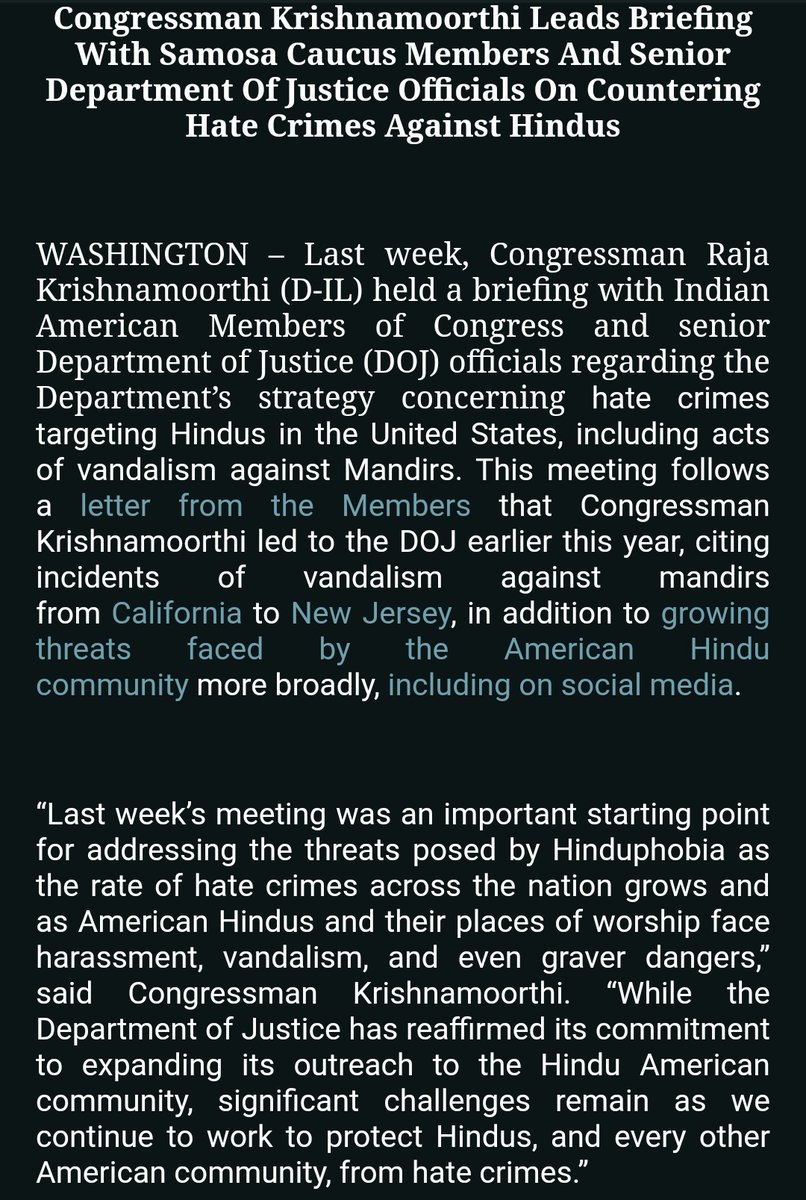https://www.state.gov/briefings/departm ... e-20-2024/QUESTION: Thank you, sir. Pakistani Prime Minister Shehbaz Sharif congratulated Indian Prime Minister Narendra Modi for securing a third term. We have seen messages on social media and many experts believe that both the prime minister have the ability to initiate the peace process and normalize the relationship. Do you have any comment on that?
MR MILLER: So we value our important relationships with both India and Pakistan. As we have said, we support direct discussions between India and Pakistan, but the pace, scope and character should be determined by those two countries, not by us.
QUESTION: Sir, Pakistani Ambassador (inaudible) Masood Khan has said that Pakistan needs modern American weapons to fight with the TTP, as they are using American weapons against Pakistani military forces that were left by U.S. forces in Afghanistan. So is the U.S. going to consider provide more U.S. military equipment to Pakistani security forces?
MR MILLER: So the United States and Pakistan have a shared interest in combating threats to regional security. We partner with Pakistan on security through our high-level counterterrorism dialogue, including several counterterrorism capacity building programs, and we support a series of U.S.-Pakistan military-to-military engagements. We are regular – in regular communication with the Pakistani leaders as a part of our partnership on CT issues, and we will continue to discuss regional security in detail, including through our annual counterterrorism dialogue and other bilateral consultations.
Also
QUESTION: Thank you, sir. Two questions, please. One, as far as U.S.-India relations are concerned comparing with the Prime Minister Modi two and now Prime Minister Modi three, third time he’s the Prime Minister of India. And a lot is going on now between U.S. and India because the NSA – Mr. Sullivan in India, and also at the G7 prime minister was there, of course; the President, among others. So where do we stand now as far as under Modi three, relations between the two countries and military – I mean, diplomatically and also culture and many other things going on?
MR MILLER: India continues to be a close partner of the United States, not just at the government level but at the people-to-people level. We do share close economic ties, close cultural ties. They continue to be a partner that we work with on our Indo-Pacific strategy, and we will look forward to continue to do that with the government – with Prime Minister Modi’s government.
QUESTION: And second, if I may – sorry. America well-known for its football. But now cricket – USA is known around the globe, household name, is now there. And this is the first time that a U.S. cricket team, who are created here in this area, in Washington – and beating top T20 or top cricket teams, including Pakistan, many other nations also by the U.S. cricket team. My question is how this diplomacy will play – cricket diplomacy – around around the globe as far as – and not only the cricket team was created here, but also U.S. is also the hosting country for the Cricket World Cup.
MR MILLER: Yeah. So I would say that we are very proud of the United States cricket team and its recent success, just as we are proud of the U.S. men’s and women’s soccer team. The U.S. men’s soccer team is about to kick off the Copa America on Sunday, so we’ll be pulling for them, as we pulled for the United States cricket team. And it is true that sports plays a powerful role in diplomacy, in connecting people, including people from countries where governments have disputes or have longstanding historical disagreements. And so we continue to see sports as an important way to bring peoples together all around the world.

